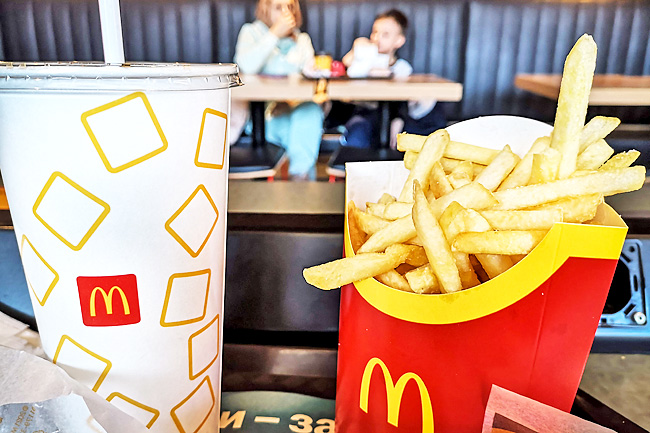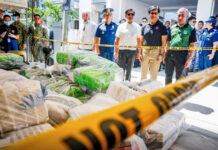NEW YORK (AFP) – McDonald’s, Coca-Cola and Starbucks have bowed to public pressure and suspended operations in Russia over Moscow’s internationally condemned invasion of Ukraine.
Several of these companies, symbols of American cultural influence in the world, have been the subject of boycott calls on social media as investors have also begun to ask questions about their presence.
“We cannot ignore the needless human suffering unfolding in Ukraine,” the fast-food giant said, announcing the temporary closure all 850 restaurants in Russia, where it employs 62,000 people.
Starbucks, Coca-Cola and PepsiCo announced their own decisions to halt or restrict business in quick succession, noting the growing human cost of the invasion.
PepsiCo said that despite halting sales in Russia of its flagship beverage, as well as 7Up and Mirinda, it would continue to offer products like milk and baby food.
“By continuing to operate, we will also continue to support the livelihoods of our 20,000 Russian associates and the 40,000 Russian agricultural workers in our supply chain,” PepsiCo CEO Ramon Laguarta said in a statement.

Starbucks, which has 130 Kuwaiti conglomerate-run coffee shops in Russia, said all operations, including product shipments, will be suspended.
A team from Yale University that keeps a list of companies with a significant presence in Russia said about 290 have announced withdrawal from the country since it invaded neighbouring Ukraine, reminiscent of “the large-scale corporate boycott of Apartheid South Africa in the 1980s”.
About 30 multinationals still remain on the list of companies with significant exposure to Russia.
Some companies, however, have noted the limits of their influence is halting business.
Yum! Brands, whose 1,000 or so KFC restaurants and 50 Pizza Hut locations in Russia are almost all independently owned, announced late Monday that it was suspending “all investment and restaurant development in Russia”.
Some businesses may have legitimate reasons to stay, several experts in ethics and communications strategy told AFP.
Companies may be hesitant to leave because they think they can mediate or because they make essential products such as pharmaceutical ingredients, said a professor of business ethics at Indiana University Tim Fort.
But he said they have to pick a side “and it doesn’t strike me as this being very difficult to pick” given Russia’s human rights and conflict law violations.
“Any one company leaving the country isn’t going to tip the balance… but there’s a cumulative effect,” Fort noted.



















































